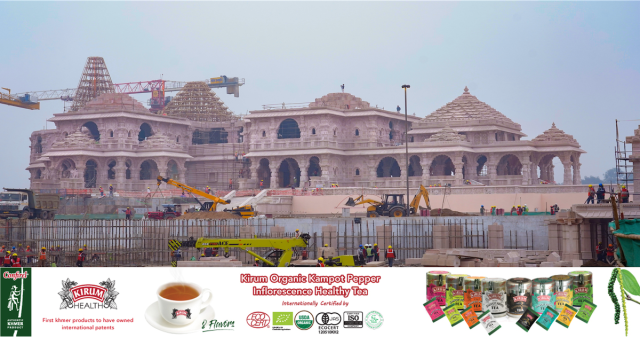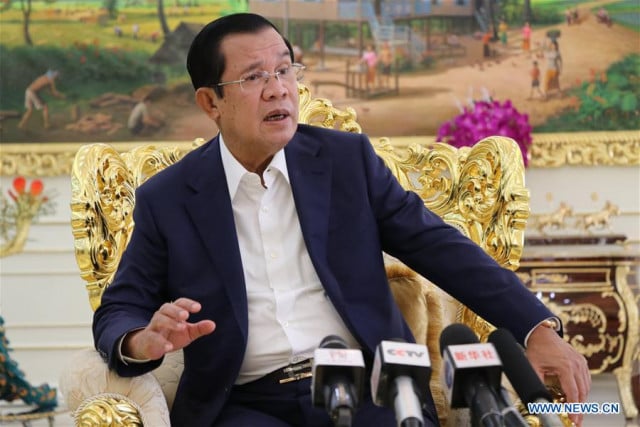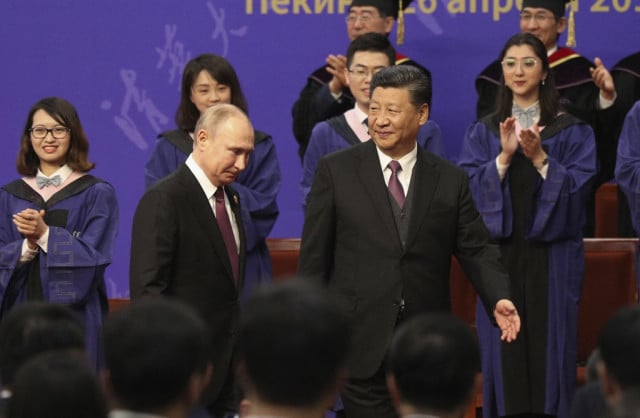A Hindu temple built atop a razed mosque in India is helping Modi boost his political standing

- By Associated Press (AP)
- January 21, 2024 6:02 PM
NEW DELHI (AP) — Three decades after Hindu mobs tore down a historical mosque, Indian Prime Minister Narendra Modi will attend the consecration of a grand Hindu temple at the same site on Monday in a political move to boost his party ahead of a crucial national vote.
Experts say the temple, dedicated to Hinduism’s most revered deity Lord Ram, will cement Modi’s legacy — enduring but also contentious — as one of India’s most consequential leaders, who has sought to transform the country from a secular democracy into an avowedly Hindu nation.
“Right from the beginning, Modi was driven by marking his permanency in history. He has ensured this with the Ram Temple,” said Nilanjan Mukhopadhyay, an expert in Hindu nationalism and author of a book on Modi.
Many see the temple's opening as the beginning of the election campaign for Modi, an avowed nationalist who has been widely accused of espousing Hindu supremacy in an officially secular India. Modi’s Hindu nationalist party is expected to once again exploit religion for political gain in the upcoming national elections in April or May and secure power for a third consecutive term.
Made into a national event by the ruling Bharatiya Janata Party, the temple’s opening in Ayodhya — a small city in northern India that has been a historical flashpoint — is expected to resonate deeply with Hindu voters.
Many of Modi's supporters see him as responsible for restoring Hindu pride in India, where Muslims make up a little more than 14% of the population.
“What is being done in Ayodhya, the kind of scale at which it is being built at the moment is actually going to make it look like the Hindu Vatican, and that is what is going to be publicized,” Mukhopadhyay said. “Modi is not going to lose a single opportunity to try to sell the accomplishment of having built a temple.”
Built at an estimated cost of $217 million, Ram Temple is central to Hindus who believe the Lord Ram was born at the exact spot where Mughal Muslims built Babri Mosque in the 16th century on top of temple ruins. The mosque was demolished by Hindu mobs in December 1992, sparking nationwide riots that killed more than 2,000 people, mostly Muslims. It set in motion events that redefined the politics of social identity in India and catapulted Modi’s BJP from two parliamentary seats in the 1980s to its current political dominance.
In the early 1990s, then a little-known local leader in his native Gujarat state, Modi also helped organize public agitation that aimed to shore up support for the construction of what is now Ram Temple at the former Babri Mosque site.
Muslim groups waged a decadeslong court battle for the restoration of Babri Mosque. The dispute ended in 2019 when, in a controversial decision, India’s Supreme Court called the mosque’s destruction “an egregious violation of the rule of law,” but granted the site to Hindus. The court granted Muslims a different plot of land in an isolated area.
That fraught history is still an open wound for many Muslims, and some say the temple is the biggest political testament yet to Hindu supremacy.
“There is a fear that this government and all the affiliates, they want to wipe out all traces of Muslim or Islamic civilization from the country," said Ziya Us Salam, author of the book “Being Muslim in Hindu India.”
Indian Muslims have increasingly come under attack in recent years by Hindu nationalist groups, and at least three historical mosques in northern India are embroiled in court disputes due to claims made by Hindu nationalists who say they were built over temple ruins. Hindu nationalists have also filed numerous cases in Indian courts seeking ownership of hundreds of historic mosques.
"On the one side, they want to change names of all cities which have a Muslim-sounding name. On the other side, they want to get rid of virtually every mosque, and the courts are happy to accept petitions on whatever pretext,” Salam said.
Rebuilding the temple at the disputed site has been part of BJP's election strategy for decades, but it was Modi — rising to power in 2014 on a wave of Hindu revivalism — who finally oversaw that promise after attending its groundbreaking ceremony in 2020.
In the lead-up to its opening, Modi asked people to celebrate across the country by lighting lamps at homes and in local shrines, saying the temple will be a symbol of “cultural, spiritual, and social unity.” His government has also announced a half-day closure of all its offices Monday to allow employees participate in the celebrations. Modi has released postage stamps on Ram Temple, and live screenings of the ceremony are planned across the country.
In many cities and towns, saffron-colored flags, a symbol of Hindu nationalism, have become ubiquitous. A number of other politicians, high profile movie stars, and industrialists are also expected to attend.
But the event will also be marked by some conspicuous absences.
Some opposition leaders are boycotting the ceremony, while denouncing it as a political gimmick and accusing the government of exploiting religion for political gain. Four key Hindu religious authorities have refused to go the opening, with two of them saying consecrating an unfinished temple goes against Hindu scriptures, and that Modi is not a religious leader and therefore not qualified to lead the ceremony.
Salam said Modi has erased a line between the state and the religion by making his faith a public exhibition that has energized his hardcore supporters.
“When was the last time he acted as a prime minister? There have been so many instances where he has just behaved either as a BJP leader or as a Hindutva mascot, seldom as the prime minister of India,” Salam said.















